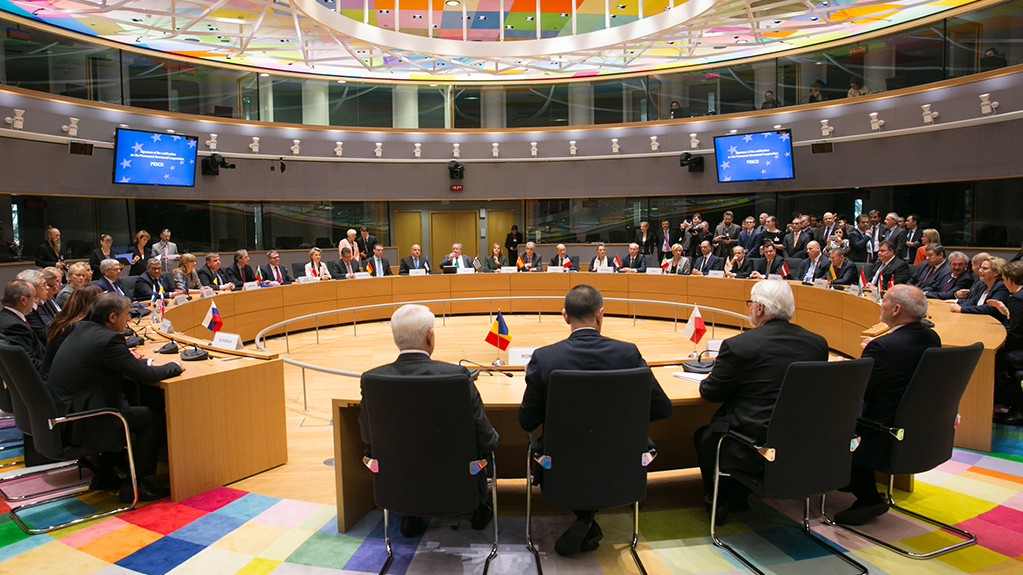The four opposition parties that surpassed the threshold in the parliamentary elections are addressing a letter to the EU High Representative for Foreign Affairs and Security, Josep Borrell, as well as the foreign ministers of EU member states.
News
Today, on November 18, a session of the Council of Foreign Affairs is being held in Brussels, where the current situation in Georgia will be discussed in light of the October 26 parliamentary elections. With this in mind, the opposition parties are sharing their views with European leaders. In their letter, they state that, "based on preliminary results and independent analysis," the four parties would have secured a combined 52% of the vote "if the elections had been free and fair."
"The October 26 elections have created an insurmountable obstacle for our European future, directly contradicting the Copenhagen criteria for EU membership and the fundamental principles outlined in Georgia's candidate status requirements…
This election did not merely represent a local power struggle; it mirrored Russian-styled tactics - subverting Georgia's democratic will. These tactics parallel those observed in Belarus (2020) and Russia’s recent elections," the letter reads.
The opposition parties emphasize that rigged elections cannot be granted the endorsement of the European Union, as "this would render elections in Georgia irrelevant for many years."
"Georgia will become just another electoral autocracy, where elections cannot change the existing political status quo.
There are several immediate steps, which the EU can take to pressure the government run by the Russian-style oligarch, Bidzina Ivanishvili, if the government refuses to secure an independent investigation of these elections:
- Initiating the EU-led assessment/fact-finding mission to assess the external and internal interference in the 2024 elections within the next 30 days. Initiating a comprehensive international assessment of the 2024 elections through an EU Election Follow-up Mission (EFM) working in coordination with OSCE/ODIHR to: Conduct a comprehensive electoral fraud investigation. Evaluate the integrity of electoral institutions.
- Call on the Georgian government not to convene the meeting of the parliament elected on October 26 until the international assessment is conducted. Make clear that this parliament will not have legitimacy if convened while the elections are not recognized as free and fair by the international community. This aligns with Article 38 of the Constitution of Georgia regarding parliamentary legitimacy.
- Clear declaration that Georgia's EU accession process for Georgia is halted due to the government’s conduct of the parliamentary elections.
- Suspending all formal EU-level communications with the existing government, including:
-
- Cancellation of EU-Georgia Association Council meetings.
- Suspension of high-level political dialogue.
- Freeze of technical cooperation mechanisms.
Until they agree to an internationally led investigation of the process.
- Suspension of the financial assistance (approximately €120 million annually) for the government until the results of the investigation are known," the opposition parties wrote in their letter.
The parties propose redirecting aid funds to Georgian non-governmental organizations and independent media. They recommend establishing direct support mechanisms for civil society organizations, creating an emergency fund for independent media outlets under pressure, and implementing programs to promote democratic accountability and electoral integrity.
"Our ultimate demand is unequivocal: new elections in 2025 under an improved electoral environment, with a politically balanced electoral administration and politically neutral state institutions.
However, as the possible immediate reactions from the European Union, as an interim step toward that end, we believe a clear call for international assessment of the elections and suspension of all EU-related inter-governmental interaction would be a sound way to support Georgia's democratic future.
Georgian democratic political parties, civil society, free media, and the Georgian people, all count on your support as our nation strives to save its democracy," the letter concludes.
The document is signed by Coalition for Change leader Nika Gvaramia, Unity - National Movement chairperson Tina Bokuchava, Strong Georgia leader Mamuka Khazaradze, and Gakharia for Georgia executive secretary Berdia Sichinava.















